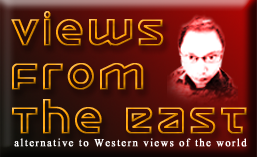News media terrorism can be easily defined by enumerating its synonyms:
- Fear mongering
- Brainwashing
- Propaganda
- The act of bashing
- Indulging in ridicule
- Inciting false or misleading information
- Potshot
- CNN
- BBC
- CBS News
Citing a recent example is also easy: try to Google search “Sochi Olympics 2014” and then turn to page result 2. You will yield results from the Huffington Post, ESPN, Global Post, BBC, CNN, and even an unruly “NoSochi2014” which states the obvious.
Figuring out what is common among them will bring you to learning how to terrorize by means of news media, or properly we call “news media terrorism.”
You see, depending on your news source, especially if it’s from a Western media outlet, there is almost ZERO good news coming from the Sochi Winter Olympics in Russia. This form of media terrorism will only intensify as the games approaches, which will be held starting February.
Here are some of the ready-made fear mongering headlines vis-à-vis the Olympics for your amusement:
ESPN: “US warns against political protest”
Bloomberg Businessweek: “Sochi Olympics Ticket Sales Are on a Downhill Slope”
Time Magazine: “Russian Suicide Bus Bombing Sparks Terrorism Fears for Sochi Olympics”
NPR: “The region surrounding host city Sochi is home to Europe’s deadliest insurgency”
Global Post: “Sochi 2014 Olympics: Triumph or nightmare?”
NoSochi2014: “Petition world leaders today! Have them say No Sochi 2014!”
Personality Café: “Attacks show Sochi Olympics under grave threat”
Reddit: “President Obama selects openly gay delegates to Sochi Olympics”
Twitter: GOP congressman: “Sochi Olympics could become “nightmare like Bengazi”
other notable headlines and excerpts:
“Controversy, not competition, dominates Olympics”
“Why Russia’s Sochi Olympics are now a battleground for gay rights”
“Russia anti-gay law casts shadow over Sochi’s 2014 Olympics”
“International Olympic Committee urged to investigate Russia anti-gay law before Sochi Olympics”
“Russia ‘not really concerned’ about Obama’s absence from Sochi”
“German president boycotts Sochi Winter Olympics”
So far, the list of those boycotting the games is dominated by Western leaders: German Chancellor Angela Merkel, British PM David Cameron, US President Barrack Obama and Vice-President Joe Biden, while France’s President Francois Hollande is yet to join this essentially gayish movement.
To note that the Olympic Games “seeks to create a way of life based on the joy found in effort, the educational value of good example and respect for universal fundamental ethical principles,” these headliners seem rather disrespectful of ethical principles, especially regarding the alleged ‘anti-gay’ media bombardment against the Russian Olympics.
Now let us tackle why these headlines are false.
Perhaps the most enduring controversy is the one relating to ‘anti-gay law’, a catch-all term invented by Western media. In actuality, the law is called ‘gay propaganda law,’ which does not discriminate against or threatens gay athletes or spectators visiting the Olympics. Properly, it is a law protecting Russian children from the propaganda of “drug addiction, alcohol use and non-traditional sexual orientation.” There is no statement in the law that ‘punishes people for being homosexual.’
This below the belt portrayal of the law has seen its own share of criticism outside Russia. The Italian International Olympic Committee official Mario Pescante was quoted as saying he found it “absurd” and criticized the US for including openly gay athletes in its official delegation to Sochi. Talk about sovereignty, observing, and respecting the laws and culture of other countries.
Western media bombs are more powerful, effective, and enduring.
Another more recent controversy is the one relating to the Volgograd bombings. Omnicom Press author William Dunkerley best explains the dumbing down by Western media on the proximity of Volgograd to Sochi: “Would a suicide bombing in the Italian Alps be a realistic worry for people at a large public gathering in Berlin, Germany? Or likewise an incident 100 miles north of Montreal to people in New York City?”
Apparently, Western news outlets are not only degrading the immense security measures put in place for Sochi (which happen to include other international security organizations like the FBI) but also downplaying the immense geographical stretch between the cities.
Here is an excerpt from his report “Sochi under Attack by U.S.”
A CBS News report read, “Suicide bomber attacks near Sochi.” CNN’s version said, “Russia bombings raise questions about Sochi Olympics security.”
On the Pyatigorsk incident, ABC News proclaimed, “Mystery bodies, explosives discovered near Winter Olympics site.” The Atlanta Journal Constitution reported, “Russia launches probe after six found dead near Sochi.”
These were certainly tragic events. But the media should have paid a bit more attention to their geography. Those are examples of distances similar to the expanse between Volgograd and Sochi. That’s what CBS news called “close.”
The target of all this media bombardment is Vladimir Putin.
Alas, we may now properly ask why all the news media terrorism? Now more expensive than the last Vancouver Winter Olympics and surpassing the spending of the Beijing Olympics in 2008, the Sochi Olympics is described by the West as “a tale of Putin-era Russia…a story of ambition, hubris, and greed leading to fabulous extravagance on the shores of the Black Sea.”
German news outlets touted the construction of the Olympic site as having had “disastrous consequences for the environment” while The Economist describes the quality of work as ‘patchy’ and Sochi 2014 as Putin’s “pet project: a sign of his power over people and nature, and his international legitimacy.”
At best, these potshots against the Olympics are part of a greater low-intensity aggression towards Putin. Unfortunately, we can only expect more ‘bad news’ and propaganda as the games approaches.
So there you go, the usual brouhahas of hosting the Olympic Games can be dangerous for the reputation of your country especially if you are not an official ally of the West.


